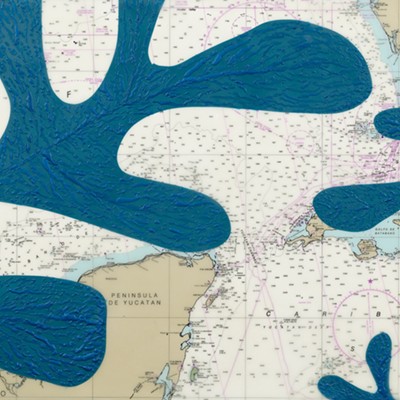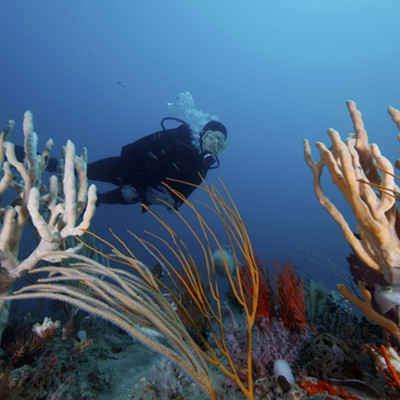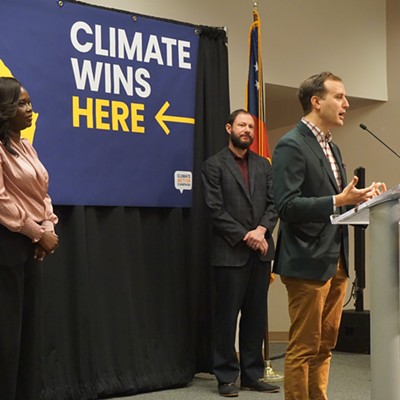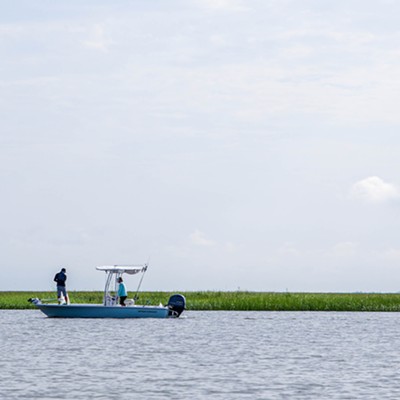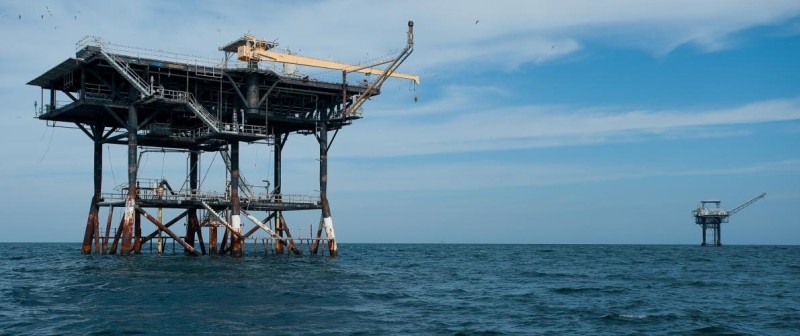
WHEN the Obama administration announced last month that the Atlantic coast could soon be open to drill for offshore gas and oil prospecting, environmental activists immediately joined forces.
Representatives from Center for a Sustainable Coast, the Georgia Conservancy, the Sierra Club, the Savannah Riverkeeper and One Hundred Miles were among over a dozen conservation groups that met last week to mount a strategy to fight the development of gas and oil extraction in Georgia’s coastal waters. They came for a full-day summit at the Coastal Georgia Center at the invitation of Oceana, a national organization that advocates for the protection and restoration of the world’s oceans.
“We hosted this forum to identify the key players in Georgia’s conservation movement,” explained Samantha Siegel, a campaign organizer with Oceana.
“It’s been very helpful to get together and plan how we want to tackle offshore drilling and seismic testing in Georgia.”
The plan to stop offshore drilling has already begun in other states with the lobbying of various city, county and state leaders to pass proclamations against seismic airgun testing, the technique used to troll for oil deposits under the ocean floor. Its sonic blasts have been proven to disrupt vital communication functions and in some cases kill marine wildlife. Of particular concern is the damage the noise could do to the endangered North Atlantic right whales, which breed and calve in the waters near Gray’s Reef.
Seismic testing is the first step to the leasing and drilling of the ocean floor, and 30 cities from Florida to Virginia have already passed resolutions against it. Two Georgia coastal communities, Tybee Island and St. Marys, have also officially voiced their opposition, but there is more work to do at the state level.
“So far, there has been no opportunity for Georgians to speak out,” says Siegel, adding that Bureau of Ocean Energy Management (BOEM) has held public meetings in Jacksonville, FL, and Virginia Beach, VA but none in Georgia.
“We’re pushing for our own meeting with BOEM. We deserve that.”
BOEM’s five-year draft plan calls for the potential leasing of 403 miles of the Outer Continental Shelf and would open up the ocean floor to gas and oil extraction for the first time in history. According to Siegel, seismic surveying companies have already begun applying for permits.
Alice Keyes, executive director of Brunswick-based One Hundred Miles, is leading a bus delegation of activists to Atlanta this week to let the Georgia Assembly know of the growing opposition to seismic testing and offshore drilling before the comment period ends on March 28.
“We want them to hear from the mouths of coastal Georgians what is important,” vowed Keyes.
While the environmental risks include dead and maimed marine life from the seismic testing and potential destruction of habitats due to possible spills like the BP disaster, Keyes pointed out at the summit that the cost benefits of drilling for oil off the Atlantic coast simply aren’t worth the risk to the tourism, commercial fishing and recreation that drive the current economy.
“The feds’ own studies show that there’s only around 550 million barrels of oil off of Georgia and South Carolina, which meets less than a month of our domestic demands,” she said.
“We’re going to spend all this money on permanent infrastructure and threaten our nature-based economy for less than a month of oil? It doesn’t make sense.”
David Kyler, executive director of Center for a Sustainable Coast, added that the cache of oil is not enough of a reserve to lower already-low prices at the pump and that the natural gas market is already flooded with product.
“In a post-fracking world, we already have a surplus of energy. Why would we risk our resources to give it away to other countries?” mused Kyler, explaining that there is no revenue sharing for oil and gas in the Atlantic and all profits would go directly to oil companies.
“No one here benefits. It’s just another case of oil profits versus the public interest.”
Kyler has been advocating for years that wind power is the best option to harness energy offshore. Oceana also argues that offshore drilling makes little economic sense and offers a report that shows how a “modest and gradual” development of offshore wind would create nine times the amount of jobs than drilling for oil and gas.
“It would only take four years of offshore wind production to generate more energy that that contained in all of the economically recoverable offshore oil and gas,” states the report.
While each of the attending environmental groups may have particular missions, the summit provided a valuable opportunity to align for a united cause.
“We came together to make sure everyone is educated on this issue,” said Keyes.
“Our job now is to take what we know and engage and empower the community so that they can participate in the discussion.” cs


